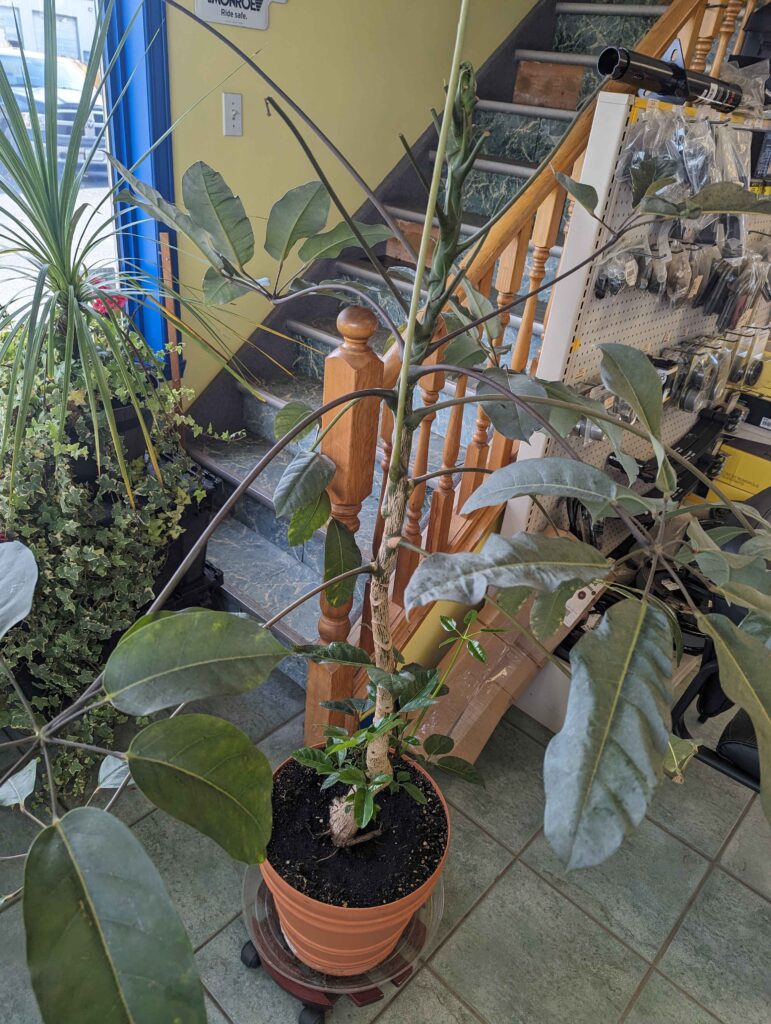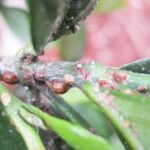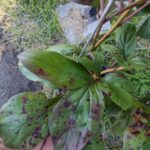
Happy November, everyone! This month we are answering two great questions!
“What is wrong with my palm tree?”
It looks like it is suffering from an infestation of spider mites. These tiny pests are difficult to spot, but you can identify them by the fine webbing they create and the discolouration of the leaves. But fret not, there are safe and effective ways to help your palm tree bounce back to its former glory.
One method to combat spider mites is a good old-fashioned water spray. These pests despise moisture, so a strong spray, focusing on the undersides of the leaves where the mites typically gather, can help dislodge them from your plant. Another natural solution is neem oil, a gentle yet effective pesticide that disrupts the life cycle of spider mites without harming beneficial insects. Simply dilute it with water and spray it on the affected plants. Additionally, you can use mild, organic insecticidal soap, ensuring to cover the undersides of the leaves where the mites reside.
Another helpful tip is to keep the humidity levels higher around your plants, as spider mites thrive in dry conditions. By making the environment less favourable for them, you can help your palm tree thrive once again. With a little care and attention, your palm tree can overcome this pesky infestation and return to its lush, green state in no time.
“My umbrella tree is growing weird, how do I fix it?”
There’s a good chance that this umbrella tree was stressed at some point, but you can see some new growth coming at the base of it. On these leaves, you might notice small, shield-like bugs called scale insects. If this were my plant, and the scale was only affecting the older leaves, I would probably chop all the older growth right above the new growth.
Dealing with scale bugs on your plants can be tricky, but with the right approach, you can effectively manage and eliminate them. If you’ve noticed scale bugs, don’t worry, it’s not the end of the world. Here are a few friendly methods to deal with them:
Pruning: If the scale infestation is limited to certain branches, carefully prune away the affected areas to prevent the bugs from spreading. Make sure to dispose of the cuttings properly to avoid contaminating other plants.
Manual Removal: You can manually remove scale bugs using a soft toothbrush or a cotton swab dipped in rubbing alcohol. The alcohol dissolves the bugs’ protective coating, making them easier to wipe off.
Maintain Plant Health: Keeping your plants healthy is key to preventing future infestations. Ensure your plants receive the right balance of nutrients, water, and sunlight to help fend off pests.
Neem Oil: Another friendly option is neem oil, effective against scale insects. Simply mix it with water and spray it on the affected plants, focusing on the stems and leaves where the bugs tend to gather.
Remember, it’s always best to take proactive measures to keep your plants healthy and pest-free. By staying vigilant and using these friendly methods, you can manage and prevent scale infestations, keeping your plants happy and thriving.
If you have any gardening questions, send them to me [email protected] the subject line “Ask Anna,” and I’ll answer them in next month’s newsletter.
Stop by Harvest on the at 2405 Vincent Massey Drive and also at 75 Cornwall Centre Road to pick up your copy of The Seeker each month.









